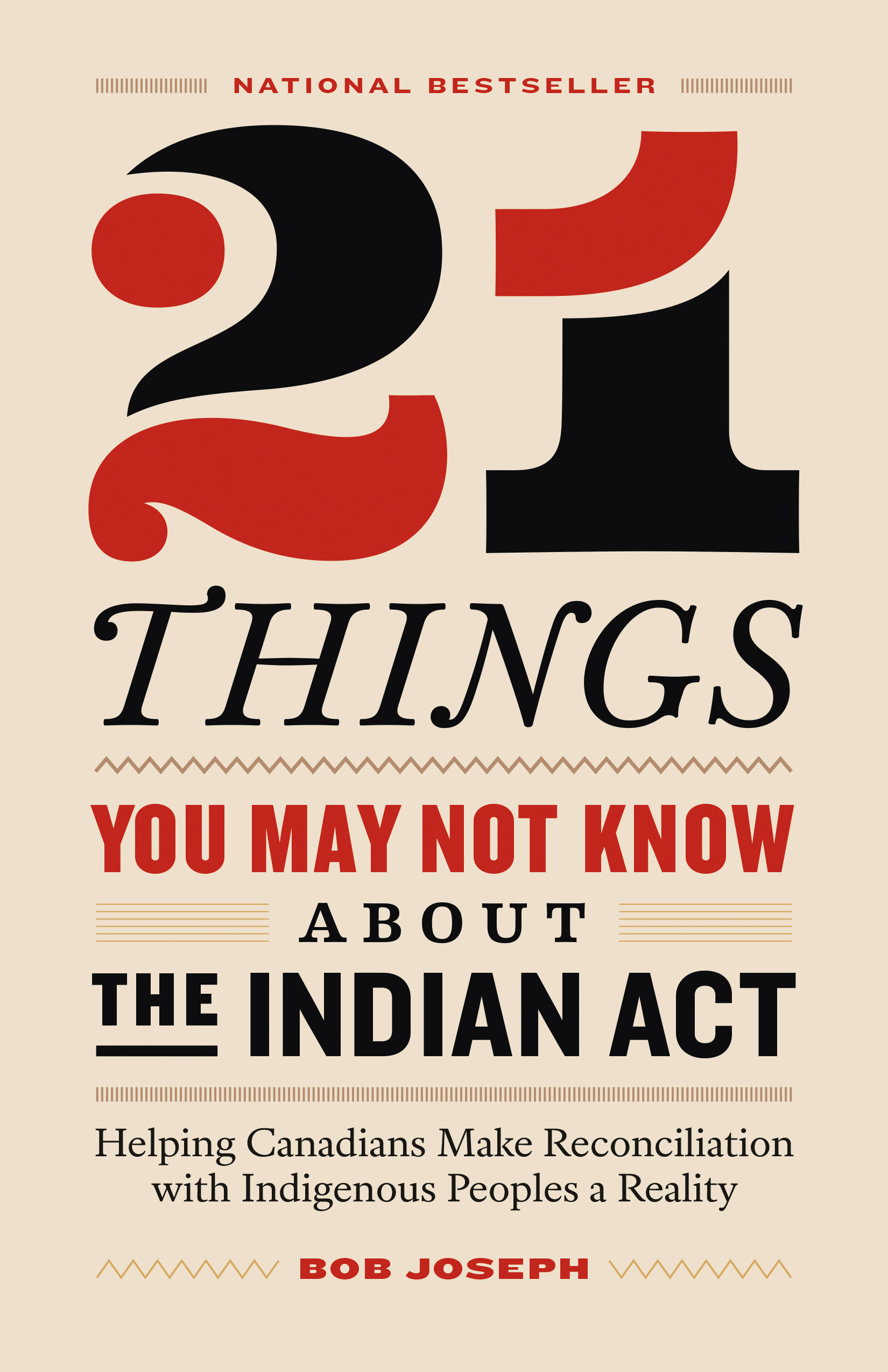
21 Things You May Not Know about the Indian Act
Helping Canadians Make Reconciliation with Indigenous Peoples a Reality
Since its creation in 1876, the Indian Act has dictated and constrained the lives and opportunities of Indigenous Peoples, and is at the root of many enduring stereotypes. Bob Joseph’s book comes at a key time in the reconciliation process, when awareness from both Indigenous and non-Indigenous communities is at a crescendo. Joseph examines how Indigenous Peoples can return to self-government, self-determination, and self-reliance—and why doing so would result in a better country for every Canadian. He dissects the complex issues around the Indian Act, and demonstrates why learning about its cruel and irrevocable legacy is vital for the country to move toward true reconciliation.
Reviews
Winner of the Bill Duthie Booksellers’ Choice Prize
4 months on the Globe and Mail bestseller list
52 weeks on the BC bestseller list
“From declaring cultural ceremonies illegal, to prohibiting pool hall owners from granting Indigenous Peoples entrance, from forbidding the speaking of Indigenous languages, to the devastating policy that created residential schools, Bob Joseph reveals the hold this paternalistic act, with its roots in the 1800s, still has on the lives of Indigenous Peoples in Canada in the twenty-first century. This straightforward book is an invaluable resource. There is much for non-Indigenous people to learn and to do. But equally important, there is much to unlearn and to undo. The time is right for this book.”
“Increasing Canadians’ knowledge about the terrible foundation this country has been built on is a critical part of reconciliation. Bob Joseph has highlighted some of the unbelievable provisions of the Indian Act and how they have impacted First Nations in Canada, and gives a brief overview of what we may replace it with going forward. His book provides helpful context to the dialogue that needs to take place in Canada.”
“Bob Joseph’s ability to navigate the complex history of the Indian Act is a wonder to behold. He provides depth and knowledge for Indigenous and non-Indigenous scholars alike. His articulate, insightful, and comprehensive analysis on the history of the Indian Act provides a sound understanding of the present narrative of Indigenous Peoples in Canada. This book provides an excellent analysis of the ongoing relationship and predicament between provincial and federal governments and Indigenous Peoples in the twenty-first century.”
MORE
though they killed us
we live
they put us down
yet we stand
they deny
but there is truth
“In his slim but powerful new book 21 Things You May Not Know about the Indian Act, Joseph documents the harsh discrimination, controls, humiliations, political dysfunctions and ‘catch-22s’ successive Canadian governments have imposed on Indigenous peoples for the purpose of subjugating and assimilating them… Joseph makes this difficult history quite accessible, methodically describing these and other human rights violations in a highly readable prose over a brief 160 pages.”
“In this time of reconciliation, a book like this becomes a much-needed guide to understanding the past and what we need to do to create a better future.”
“This pocket-size primer is a perfect introduction to a troubling legacy with which Canadians continue to wrestle.”
“Joseph provides a path to move forward that requires partnership between an educated settler population and Indigenous people.”
LESS
$19.95 CAD • $15.95 USD
Published April 10, 2018
Paperback, ebook



